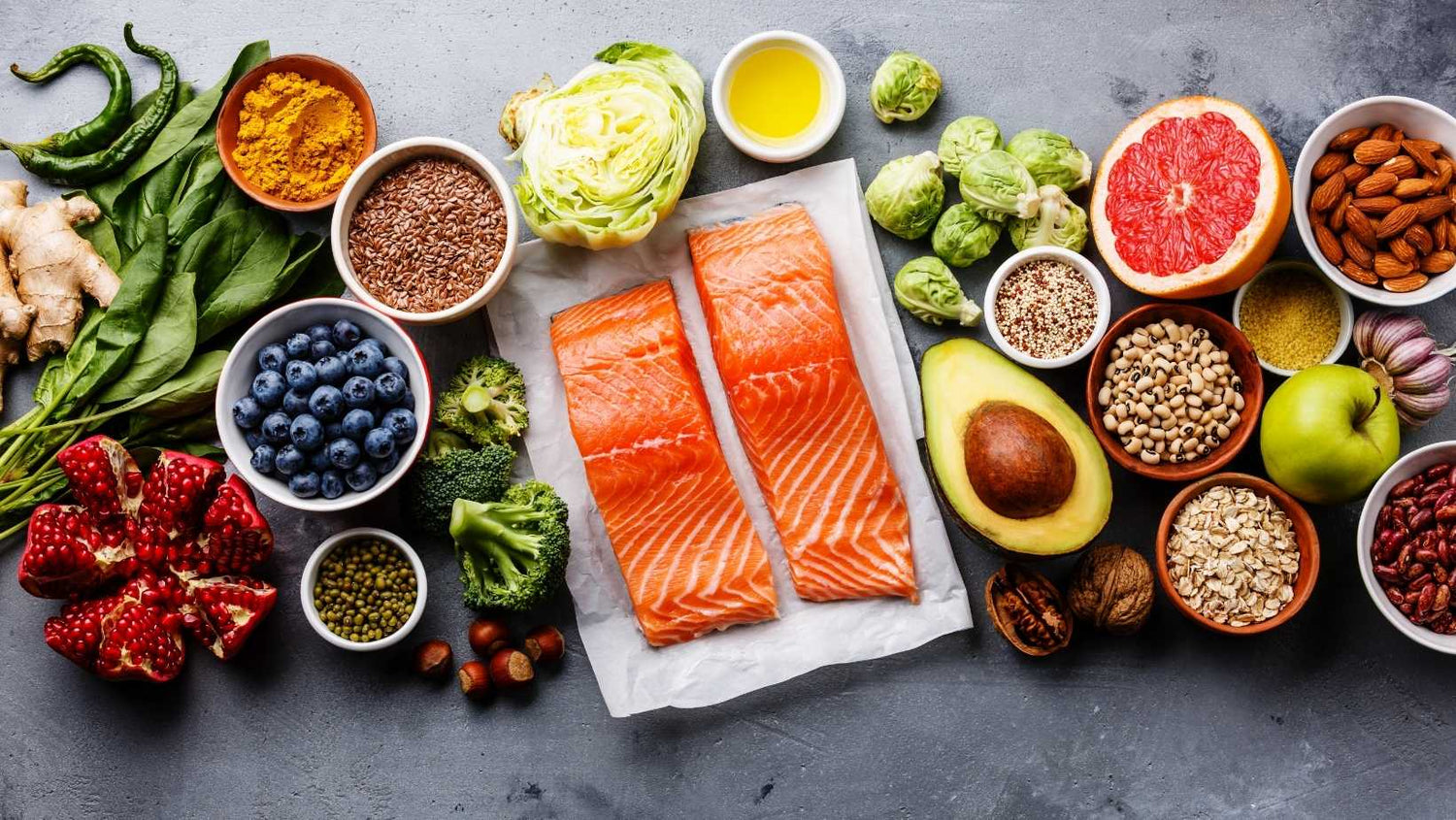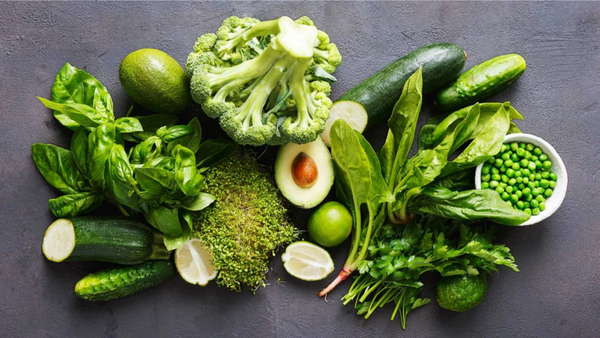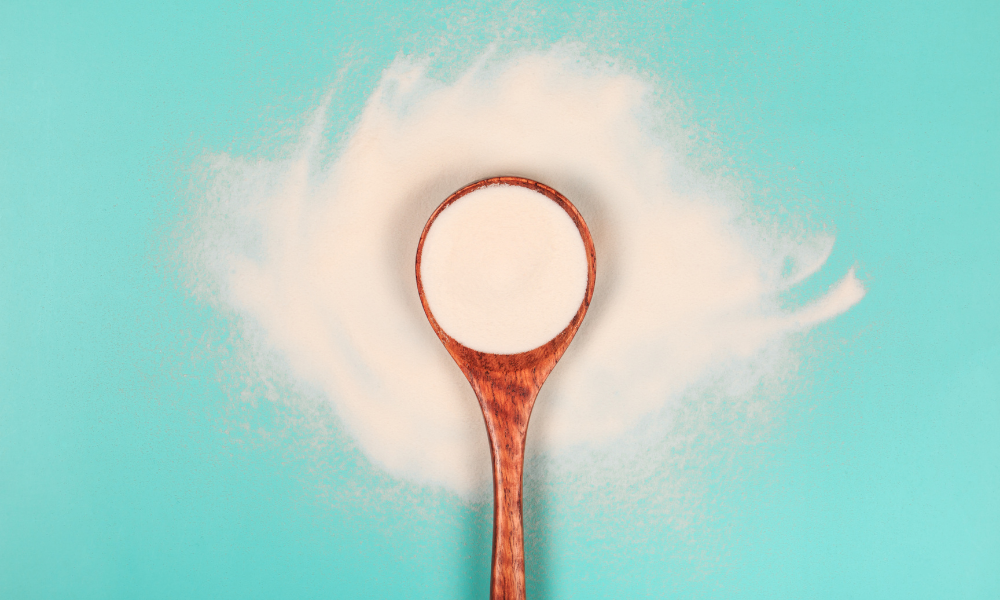“If you eat X every day, you will live to be 150 years old!” “This food works wonderfully against EVERYTHING!” Even if such sensational headlines do not really reflect the truth, food does have a direct influence on our well-being. Especially in the case of inflammation. We explain in detail what you need to know about inflammation and show you a selection of natural foods that can support your health.
IT'S WORTH READING!
AT THE END OF THE ARTICLE WE WOULD LIKE TO GIVE YOU A LITTLE JOY WITH A VOUCHER!
What are inflammations actually?

Inflammations (from the Latin inflammatio ) are not inherently a bad thing. Originally, they were intended to help the body fight diseases. They protect it from damage and in most cases they are a necessary part of the healing process. Inflammation is therefore a reaction of the body's own defense system to a stimulus, such as invading pathogens or a minor injury. [1]
Inflammation is not usually maintained by the body forever. Because once the cause of the inflammation is no longer present, the body switches off its defense program and the state of health returns to normal.
However, inflammation can also become chronic. In this case, inflammatory reactions occur even though there is no acute threat. Chronic inflammation harms the entire body and increases the risk of many diseases, such as type 2 diabetes, autoimmune diseases and cancer.
If you want to know if you are suffering from inflammation, look for the five main symptoms: swelling, pain, overheating, redness and impaired function.
What are natural anti-inflammatories?
There are foods you can eat that can reduce the risk of inflammation. Of course, they do not eliminate the need for medical treatment or medication, but they can also help reduce inflammation.
And of course, an anti-inflammatory diet rich in essential nutrients is, without question, generally healthy.
An anti-inflammatory diet focuses on eating lots of fruit and vegetables, foods with omega-3 fatty acids , whole grain products, high-quality protein, healthy fats and spices. It is also important to consume vitamins such as vitamin K and trace elements such as selenium .
Many plant foods are good sources of antioxidants , which help minimize the number of free radicals in the body. These can cause cell damage. This damage, in turn, often increases the risk of inflammation and paves the way for other diseases.
Inflammation also plays a role in cardiovascular disease. However, the right diet can help. For example, a Mediterranean diet, which focuses on plant-based foods and healthy fats, is said to reduce the effects of inflammation on the cardiovascular system, according to a study in the journal PLOS ONE . [2]
So is a change in lifestyle, especially when it comes to food and drink, the answer to a life free of inflammation?
What is an anti-inflammatory diet?
An anti-inflammatory diet can serve as a complementary therapy for many diseases that are exacerbated by chronic inflammation, such as psoriasis, asthma, Crohn's disease, rheumatoid arthritis, and metabolic syndrome.
To stay with the example of metabolic syndrome, this disorder refers to a collection of conditions that often occur together, including type 2 diabetes, obesity, high blood pressure and cardiovascular disease. [3]
According to science, inflammation plays a crucial role in all of these diseases. This also means that reducing inflammation could reduce the risk of these diseases.
Let's look at a selection of foods that could help us fight inflammation.

10 natural foods that have anti-inflammatory effects
How do you know which foods are best for you when you have inflammation?
Here we have selected a few foods for you that are said to have particularly anti-inflammatory properties:
1. Berries
These small fruits are packed with fiber, vitamins, and trace elements such as zinc . There are many different types of berries around the world, all of which contain what are known as anthocyanins, antioxidants that can reduce inflammation in the body, as shown by a study in the Journal of Agricultural and Food Chemistry . [4] In our country, you will often find strawberries, raspberries, blueberries, and blackberries.
Another study that looked at the natural production of killer cells - so-called NK cells, which ensure the proper functioning of the immune system - showed that the bodies of subjects who ate blueberries daily produced more of these cells. [5]
2. Dark chocolate
Dark chocolate: Tastes good and also contains valuable things, including antioxidants and essential trace elements such as copper or manganese . This was shown by a study in the journal Nutrients . [6]
The substances in dark chocolate responsible for the anti-inflammatory effect are called flavanols, the secondary plant substances of the cocoa bean. In a study from 2005 with the long title Acute consumption of flavanol-rich cocoa and the reversal of endothelial dysfunction in smokers , smokers showed improvements in the function of the endothelium, the layer of cells that lines lymph and blood vessels, among other things, within two hours of eating chocolate with a high flavanol content. [7]
3. Turmeric
You may know turmeric from curries and other Indian recipes or the famous “golden milk”. This spice contains curcumin, which is said to have anti-inflammatory properties.
Curcumin is said to have many miraculous and healthy properties, not all of which may be true. However, a study published in the journal Advances in Experimental Medicine and Biology shows that turmeric may reduce inflammation associated with arthritis, diabetes, and other diseases. [8]
4. Fatty fish
You probably already know that fish is healthy and a good source of omega-3 fatty acids . [9]
But did you know that the unsaturated fatty acids DHA (docosahexaenoic acid) and EPA (eicosapentaenoic acid) it contains may reduce inflammation that occurs as a result of metabolic syndrome, diabetes, and heart or kidney disease? At least that's what a study published in the journal Prostaglandins & Other Lipid Mediators suggested. [10]
In another study from 2011, consumption of salmon or supplements containing DHA or EPA appeared to result in a reduction in various inflammatory markers in the body. [11]
5. Green tea
Fancy a cup of tea? If so, make sure it's green tea, which can reduce the risk of obesity, Alzheimer's disease, heart disease, and even cancer, according to a literature review presented in the journal Chinese Medicine in 2011. [12]
Its antioxidant properties are based on various secondary plant substances, the catechins, which not only reduce inflammation but also damage to fatty acids in the cells. This was shown by a study from 2007. [13]
6. Avocado
Avocados are on everyone's lips. Literally. Because these berries, which are very popular in our country, are packed with potassium , magnesium and fiber. They also contain tocopherols and carotenoids, which, according to a study published in the Journal of Agricultural and Food Chemistry, are associated with a reduced risk of cancer. [14]
7. Grapes
Grapes contain anti-inflammatory anthocyanins and are also a good source of resveratrol and oligomeric proanthocyanidins (OPC) – compounds that are believed to be able to reduce the inflammatory marker NF-kB. [15]
8. Peppers
The vegetable from the nightshade family provides, among other things, the antioxidant quercetin. As a study presented in the American Journal of Clinical Nutrition in 2011 shows, it can reduce a marker for oxidative damage in people with sarcoidosis - an inflammatory disease. [16]
9. Tomatoes
Tomatoes contain a secondary plant substance called lycopene, which, along with alpha- and beta-carotene, is one of the most important carotenoids and appears to have impressive anti-inflammatory properties. [17]
10. Cherries
The popular stone fruits of the cherry tree are not only sweet and delicious, but also anti-inflammatory. This is suggested by a study published in the Journal of Nutrition in 2006. During the study, the subjects were given 280 grams of cherries every day for a period of one month. A decrease in the inflammation marker CRP was observed, which remained low even up to 28 days after the last portion of cherries had been consumed. [18]
Conclusion: Eat to stay healthy
The right diet can help reduce inflammation and lower the risk of chronic inflammatory diseases.
While there is no one-size-fits-all anti-inflammatory diet, a diet rich in fresh fruits and vegetables and healthy fats can help control inflammation.
AS PROMISED, YOU WILL RECEIVE A 10% VOUCHER ON THE FOLLOWING PRODUCTS:
Turmeric, Potassium, Magnesium, Zinc, Zinc & Copper, OPC, Omega-3, Krill Oil, Essential 4-Daily
SIMPLY COPY THE CODE BESSERESSER+V10 AND ENTER IT AT CHECKOUT.
Click here to shop
[1] https://www.apotheken.de/therapie/diagnoseverfahren/10332-was-ist-eine-entzuendung
[2] https://journals.plos.org/plosone/article?id=10.1371/journal.pone.0100084
[3] https://www.internisten-im-netz.de/unternehmen/metabolisches-syndrom/was-ist-ein-metabolisches-syndrom/
[4] https://pubs.acs.org/doi/10.1021/jf4044056
[5] https://pubmed.ncbi.nlm.nih.gov/22111516/
[6] https://www.mdpi.com/2072-6643/6/2/844
[7] https://pubmed.ncbi.nlm.nih.gov/16198843/
[8] https://pubmed.ncbi.nlm.nih.gov/17569207/
[9] https://www.gesundheitsforschung-bmbf.de/de/geistig-fit-mit-omega-3-fettsauren-und-resveratrol-8246.php
[10] https://pubmed.ncbi.nlm.nih.gov/22326554/
[11] https://www.tandfonline.com/doi/full/10.3109/00365513.2010.542484
[12] https://cmjournal.biomedcentral.com/articles/10.1186/1749-8546-5-13
[13] https://pubmed.ncbi.nlm.nih.gov/17584048/
[14] https://pubs.acs.org/doi/10.1021/jf901839h
[15] https://www.aerztezeitung.de/Medizin/Resveratrol-im-Rotwein-hemmt-Entzuendungen-236023.html
[16] https://www.clinicalnutritionjournal.com/article/S0261-5614(11)00026-4/fulltext
[17] https://www.dge.de/forschung/weitere-publikationen/fachinformationen/sekundaere-pflanzenstoffe-und-ihre-effekt/
[18] https://academic.oup.com/jn/article/136/4/981/4664335?searchresult=1

















